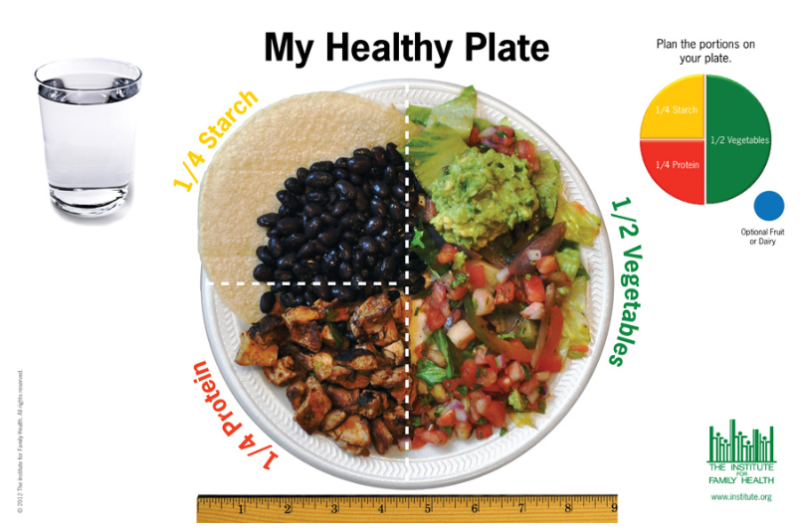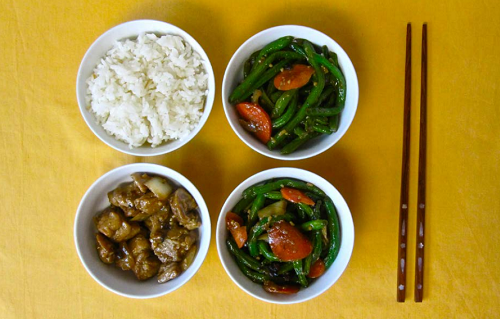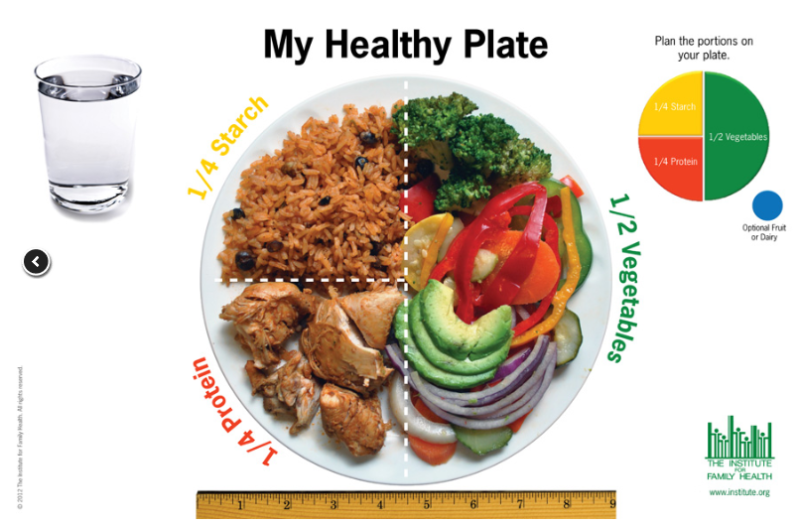The concept of the healthy plate is quite simple:
- One quarter of the plate should be lean meat or other healthy protein
- One quarter should be starches, preferably whole grain.
- Fill the remaining half with a variety of vegetables.
Remember: The Healthy Plate is about proportions on the plate. How much you should eat is in the Meal Timing and Portions page.
Dr. Anne-Sophie Brazeau introduces GDM nutrition and the Healthy Plate

Audio Only
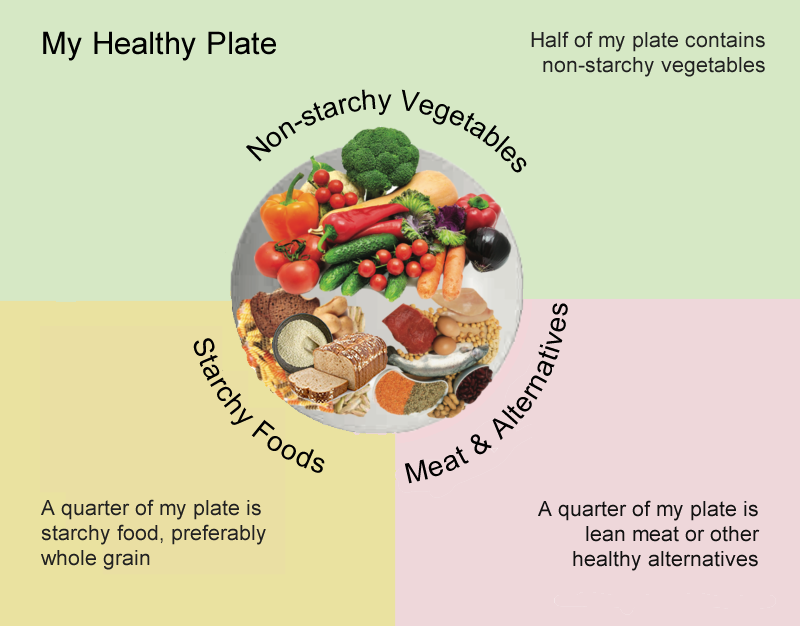
Asparagus
Artichoke
Beans (yellow or green)
Broccoli
Brussels sprouts
Cabbage (Chinese, green or red)
Cauliflower
Chard
Cucumber
Eggplant
Green Beans
Kale
Leeks
Lettuce
Mushrooms
Okra
Onions
Peas (snow)
Peppers
Radish
Shallots
Spinach
Summer squash
Tomato (sauce, canned)
Turnip
Zucchini
Whole grains
Whole grain bread
Whole grain bagels
Whole grain pita
Whole grain pasta
Brown rice
Whole grain crackers
Oatmeal
Starchy Vegetables
Potatoes
Sweet potatoes
Corn
Pumpkin
Squash
Parsnips
Cassava
Animal-based
Fish
Chicken (skinless)
Pork
Lean meats
Egg
Milk
Cheese
Yogurt
Kefir
Plant-based
Tofu
Lentils
Chickpeas
Kidney beans
Fava beans
Lima beans
Black beans
(all beans excepts green beans)
Tip For Legumes
Legumes are good sources of protein but are starchy. Fill one quarter of plate with legumes and fill the rest of the plate with non-starchy vegetables.
Healthy Plate Examples
Here are some examples of healthy plates. All items are linked to recipes.
Spicy Baked Fish with Scallion Rice and Roasted Brussels Sprouts
- Protein: Spicy Baked Fish
- Non-starchy vegetables: Roasted Brussels Sprouts
- Starches: Scallion Rice
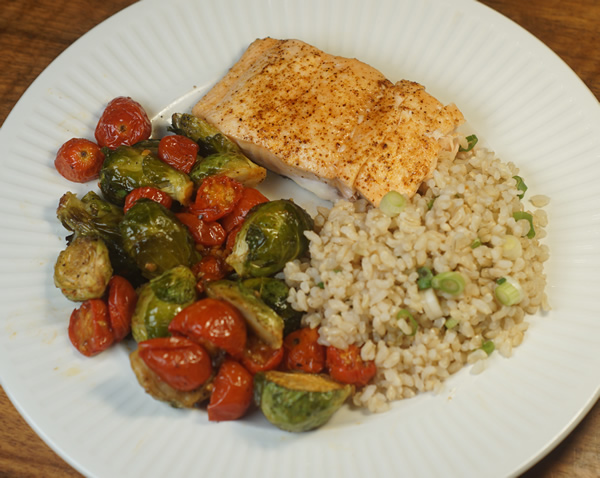
Oven-Roasted Chicken with Spanish Rice and Roasted Vegetables
- Protein: Oven-Roasted Chicken
- Non-starchy vegetables: Roasted Vegetables
- Starches: Spanish Rice
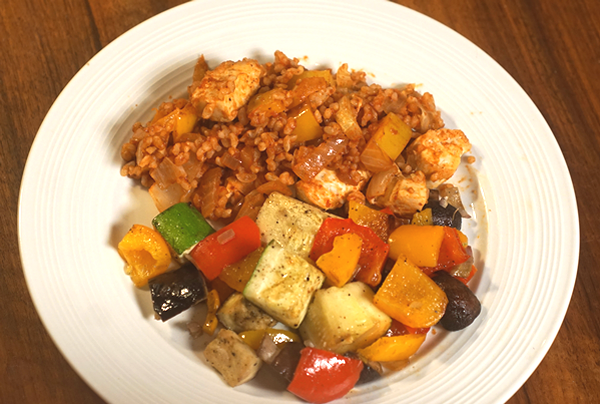
Oven-Baked Cod with Garlic-Sautéed Vegetables and Brown Rice
- Protein: Oven-Baked Cod
- Non-starchy vegetables: Garlic-Sautéed Vegetables
- Starches: Brown Rice
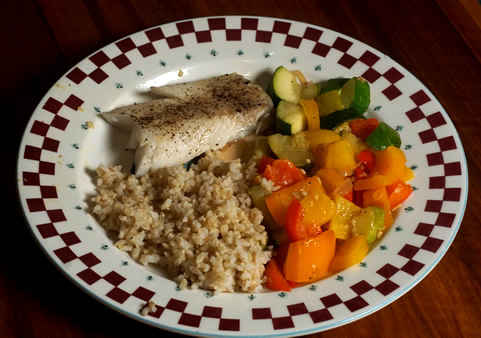
Variations on a Theme
The concept of the Healthy Plate can apply to any style any culture. For example many traditional cuisines tend to be very heavy in starches such as rice, pasta or potatoes. The trick is to change the proportions. Here are three examples of healthy plates from Latino, Asian and “Canadian” cuisines.


